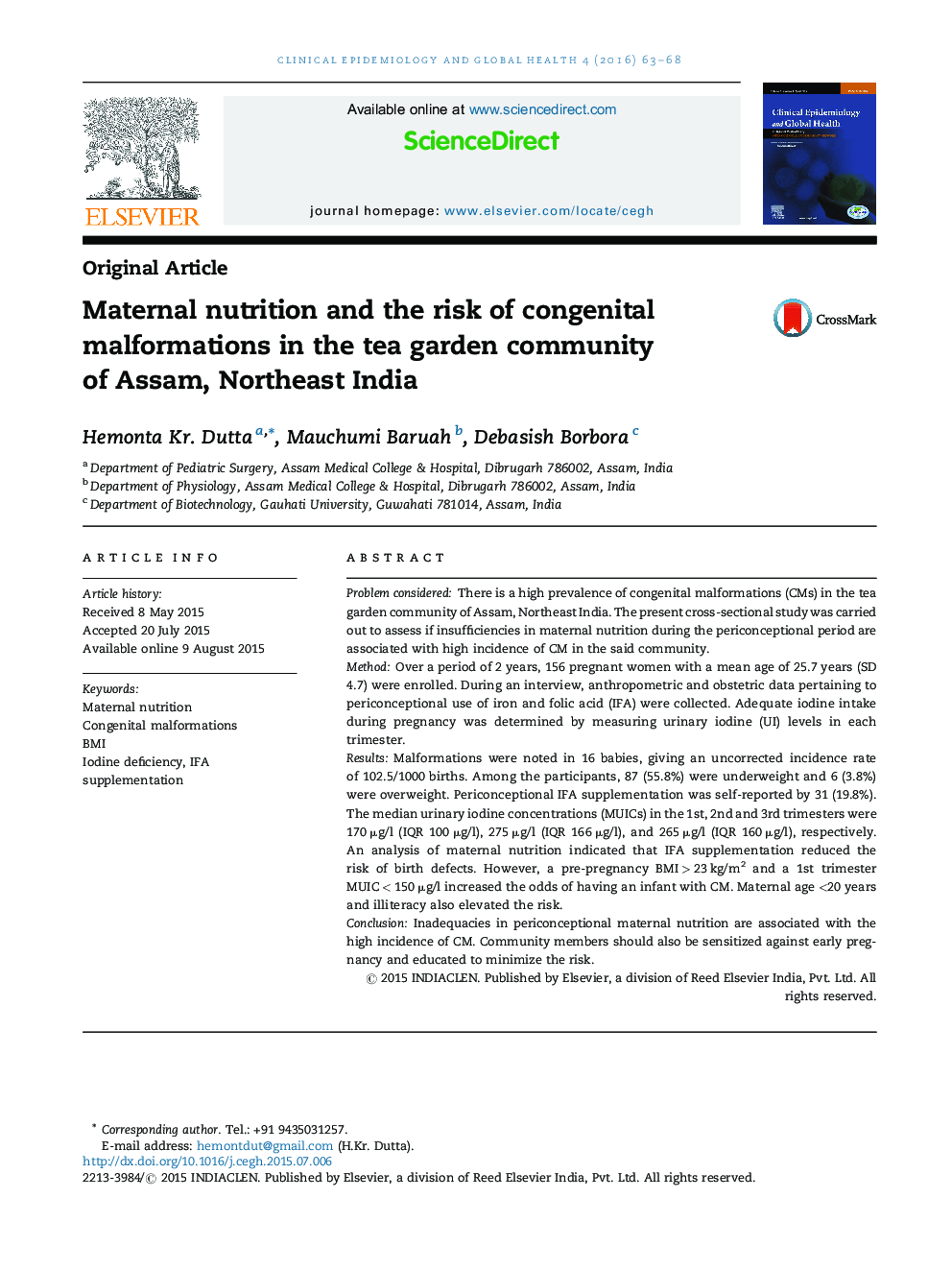| Article ID | Journal | Published Year | Pages | File Type |
|---|---|---|---|---|
| 3396224 | Clinical Epidemiology and Global Health | 2016 | 6 Pages |
Problem consideredThere is a high prevalence of congenital malformations (CMs) in the tea garden community of Assam, Northeast India. The present cross-sectional study was carried out to assess if insufficiencies in maternal nutrition during the periconceptional period are associated with high incidence of CM in the said community.MethodOver a period of 2 years, 156 pregnant women with a mean age of 25.7 years (SD 4.7) were enrolled. During an interview, anthropometric and obstetric data pertaining to periconceptional use of iron and folic acid (IFA) were collected. Adequate iodine intake during pregnancy was determined by measuring urinary iodine (UI) levels in each trimester.ResultsMalformations were noted in 16 babies, giving an uncorrected incidence rate of 102.5/1000 births. Among the participants, 87 (55.8%) were underweight and 6 (3.8%) were overweight. Periconceptional IFA supplementation was self-reported by 31 (19.8%). The median urinary iodine concentrations (MUICs) in the 1st, 2nd and 3rd trimesters were 170 μg/l (IQR 100 μg/l), 275 μg/l (IQR 166 μg/l), and 265 μg/l (IQR 160 μg/l), respectively. An analysis of maternal nutrition indicated that IFA supplementation reduced the risk of birth defects. However, a pre-pregnancy BMI > 23 kg/m2 and a 1st trimester MUIC < 150 μg/l increased the odds of having an infant with CM. Maternal age <20 years and illiteracy also elevated the risk.ConclusionInadequacies in periconceptional maternal nutrition are associated with the high incidence of CM. Community members should also be sensitized against early pregnancy and educated to minimize the risk.
